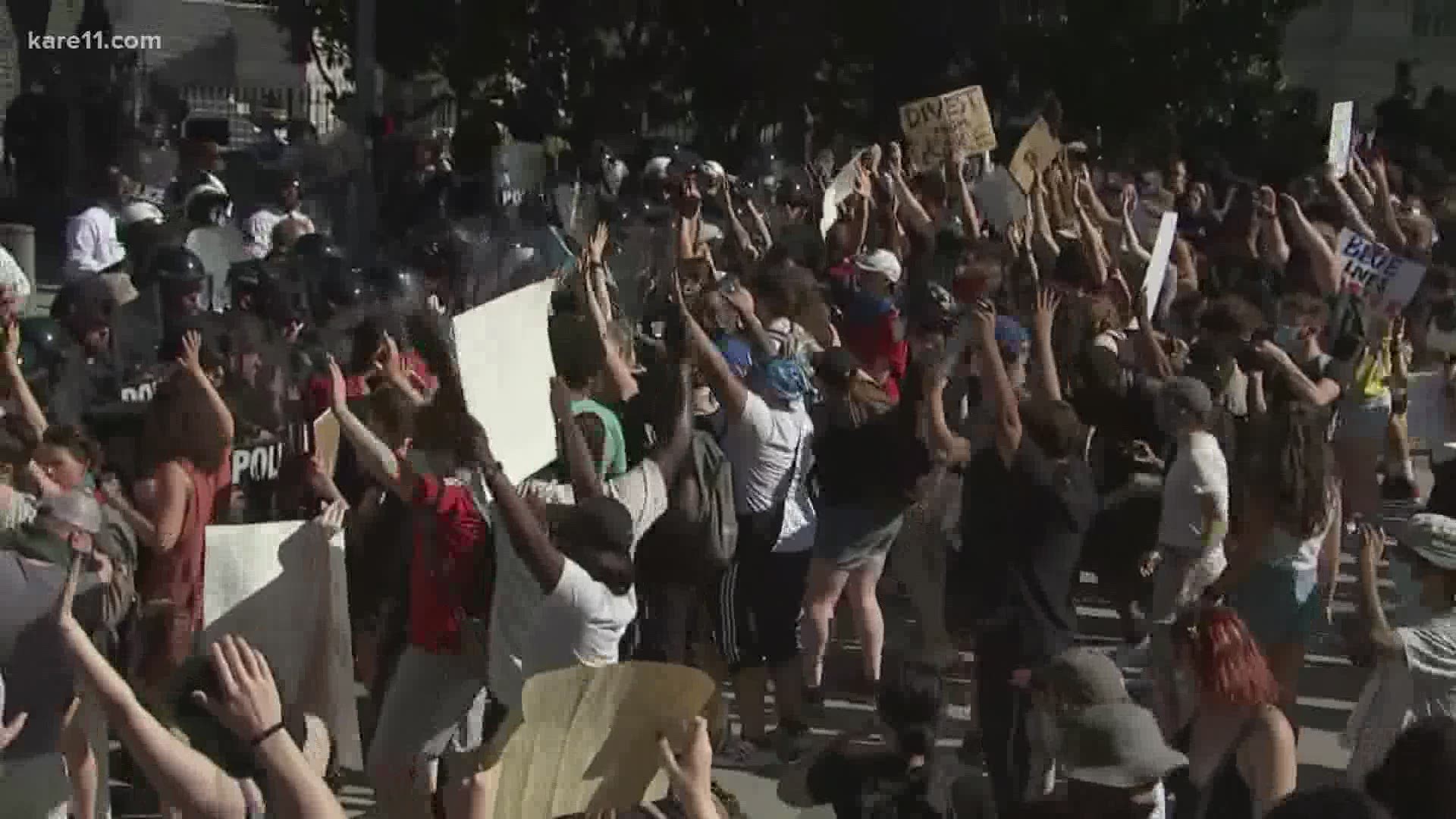MINNEAPOLIS — Something many parents might be struggling with right now is how to talk to your children about everything that is going on in the world today.
If you’re a parent, you may have noticed a change in your children already.
“Kids are feeling the stress, feeling the concern from parents and from community members. We see behavioral changes, we see nightmares and lost sleep,” Dr. Krishnan Subrahmanian says.
Through his work as a pediatrician at Hennepin Healthcare, Subrahmanian sees kids and their parents on a daily basis.
He has seen a lot of unique things over the years, but he has never seen so many parents all worried about the same thing.
"Every parent that I spoke with had questions about how do I talk to my child about trauma, about racism and race,” Subrahmanian says.
They’re complex issues that adults themselves are struggling with right now.
So, it’s no surprise that many adults would have a difficult time explaining those very same issues to their children.
"Kids are so smart, they're so perceptive to situations like these,” Subrahmanian says. “It’s important to let them ask questions and explain their emotions and how they’re feeling.”
Subrahmanian says parents should fight the urge to shield their kids from these tough topics.
Instead, he recommends that parents take control of the conversation and use tools that kids can relate to.
One tool he recommends is a special town hall discussion that will be broadcast live this Saturday.
The one-time event is a collaboration between CNN and Sesame Street and its main purpose is to help kids better understand racism.
“To have an organization like Sesame Street prioritize this and to bring it to our kids and parents is enormous,” Subrahmanian says.
"It allows children the space to ask those questions in a setting that is comfortable to them.”
Another tool parents can use is children’s books that talk about racism and racial differences.
Subrahmanian says these books are great conversation starters that spark a lot of questions.
And if parents don’t have the answer to one of those questions, Subrahmanian says it’s okay, because kids need to know that no one has all the answers to these complex problems.
"It's a learning process and it's a marathon not a sprint,” Subrahmanian says.
For a list of great children’s books that focus on race, racism and resistance, click here.
In the last month, Ramsey County Children's Mental Health Collaborative's Executive Director Wendy Goodman said they've fielded 1,000+ text messages and calls for resources and support.
Goodman shared a few resources: Virtual calm room; professional resources to help youth and families respond to/cope with community unrest, grief and loss, violence, racism, distress and trauma; Community Bulletin Board; 'All In One Place' Family Care; and a resource page for families.

